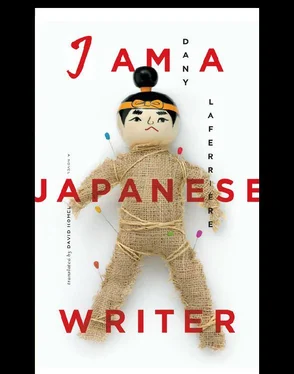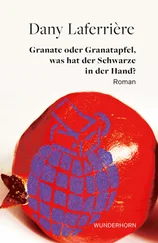A SUNDAY IN THE PROVINCES
MY BODY IN the bath. My mind on the ceiling. Once in a while they unite. And I come to the surface at the point of drowning. A spasm of life. I gasp for breath. Rub my thighs, arms and face hard, awakening the waterlogged cells. I have left the world of water; now I am in the world of air. Bent, my hands over my face, I try to recover my spirits before joining Basho on the road. I write the word “road” and immediately think of Kerouac — an automatic response. Basho did it centuries before he did, and on foot. But now he is on his own, without his friend Sora.
Sora, recovered now, was waiting for him in Osaki.Basho was so celebrated in Osaki that he felt as though he were attending his own funeral. Etsujin danced. The young disciples were joyful. Everyone at the samurai Joko’s house.Basho seemed to have regained fresh strength. It’s always strange to see someone in such good health when you know they’ve been dead for so long: the triumph of the mind.
I watch a sunbeam’s progress across the floor. The telephone close by. I like to read in the bath. I’d always rather read than write. I see myself walking the sunny streets of my childhood, holding my grandmother’s hand. A Sunday in the provinces. A man sitting quietly on his gallery in front of a large table covered with books, all of them open. He was leaning over them, as if contemplating a rich and varied buffet. He moved from book to book with equal excitement, a gourmand. Nothing around him seemed to matter, nothing outside of those appetizing dishes. He seemed so far from us, so beyond our reach — we could see him, but he was obviously elsewhere. My grandmother whispered to me, “He’s a reader!” Right away I thought, “That’s what I’ll do when I grow up. I’ll be a reader.” In the few photos from my teenage years, I always have a book in my hand. Even in the pictures of me talking with my classmates. The ones I run into now remind me of that habit of mine. There was no way, it seemed, to communicate with me. I always had my nose in a book. I have a photo that shows me lying on the floor, reading, with my mother in the background, ironing my school uniform. It must have been a Sunday afternoon. My mother must have urged me to go out, to the square or to the movies with my friends, but I wanted only to read. Back then, neither the sun nor the moon nor girls interested me. Only the journeys that books could provide. I could never get enough. I dreamed that, one day, I would enter a book and never come out. It finally happened with Basho.
THE TELEPHONE RINGS.
“Hello? Hello?”
No answer. I put down the receiver next to the towel, keeping the book open with my left hand. I carry out the operation carefully, so I don’t get the book wet. Without leaving my city, without even leaving my neighborhood (except to get something to eat at a restaurant or spend the evening with a gang of liberated Japanese girls), I accompany a poet-monk step by step on his last journey. A young man who sets out on the road — that’s nothing. A man at the end of his life, who can calculate the risks involved, that’s something else entirely.
The telephone goes off again. I can say “Hello” all I want, nobody answers. I hear someone breathing on the other end of the line.
Finally, a small female voice murmurs, “I was sitting near you in the subway three days ago.”
“Who are you?”
“I was sitting on your side of the car, and you were reading Basho.”
I can’t make the connection between the voice and the face. I was expecting an Asian accent.
“Oh, now I remember…”
“No, you’re mixing me up with the Chinese girl across from you that you kept staring at.”
“That happens all the time,” I tell her. “You look at someone, but the whole time someone else is looking at you and you don’t even know it.”
“She was Chinese, but I’m Japanese. That’s normal, since you were in Asiatown.”
“How could you tell she was Chinese?”
“My mother is Korean and my father is Japanese, so I know about that kind of thing. If she isn’t Korean or Japanese, that means she’s Chinese.”
I hear her laughter.
“What about the way they laugh? Is there a difference?”
“Not really. On the other hand, the Japanese vagina is diagonal, but the Korean is horizontal. I don’t know about Chinese girls, if they’re vertical. You see, we’re all very geometrical.”
I laugh. “It’s funny, you don’t have any accent at all. You talk like you and me.”
That really set her off laughing. A regular belly laugh. Admit it, it’s pretty strange that despite these migrations all over the planet — people can’t or won’t stay in their home countries — an accent is still the thing that determines someone’s place on the social ladder, more than race or class. An accent speaks for race and class. An Asian girl speaking English with a French accent is a strange hybrid.
“Do you know Basho?”
“A little.”
“Do you like him?”
“No.”
I have no further questions.
“Then why are you calling me?”
“I can’t tell you over the phone.”
“Where are you?”
“Across the street from your place, standing on the sidewalk.”
“How did you get my phone number?”
“I saw your name on your mailbox and I called Information. They gave me your number. It’s that simple.”
“What do you want from me?”
“Nothing… Nothing at all.”
“Come on up, we’ll see. The door is open.”
“I’ll be right there.”
The girl is determined! Something isn’t right about this business. Since when does a young woman have to make the first move? Still, I’m not dreaming. Have things changed while I wasn’t looking?
Basho had scarcely rested at all after this endless journey, nearly 2,340 kilometers in five months. Sora went with him to Ise, where he had family — we were at the sixth day of the new moon. Basho wanted to attend a ceremony, the Transporting of the Relics to a new sanctuary. For one last time, he took up his walking stick with the firm intention of eating the clams at Futami-ga-Ura. He would have to leave Sora once and for all, and the thought saddened him. Basho composed a poem to mark the occasion. Sora left to keep from crying.
Must I choose between Basho and the woman who is about to show up? Between the past, with its fascination, and the present, so warm, so true, so alive? Both attract me, but can I keep them both? That is my dilemma. I slip beneath the surface of the water. The present is already coming up the stairs.
I CONCENTRATE ON what I am doing without paying attention to anything else. But from time to time, another human presence decides to manifest itself. And here is one now, compact, before me, demanding my presence in this space and time we share. And I’ve got the phone cord wrapped around my arm. When I talk, I have this obsession with playing with the cord. I don’t know how I’ve managed to tie so many knots in it. I must be pretty nervous. My sole objective, right now, is to keep from getting water on my precious book. I lifted my left hand from the bath to answer the phone while, with my right, I kept the book away from the drops of water. Two towels helped me perform this delicate operation. One is on the floor; the other, on the basin. Sometimes, but not always, I can talk to someone on the phone without interrupting my reading. It gives a kind of depth of field to the conversation. It’s not that I recommend doing two things at once in order to go faster; in these sped-up times of ours, I’d rather slow down. But I did it once, by accident, really, and I discovered that each activity gave depth to the other. My phone conversation with my contemporary renewed my vision of an author who lived long ago. I always prefer dead writers — they stay younger longer. Death preserves us. So here, on the one hand, is Basho (1644–1694), and on the other, this girl, about whom I know virtually nothing, neither her date of birth nor that of her death. We are all but ignorant when it comes to people we see every day, whereas we know too much about the dead. But why would a girl I saw in the subway, and with whom I hardly exchanged a single look, go to such lengths to find my phone number and, once she’d found it, call me? I guess there are days like that.
Читать дальше












